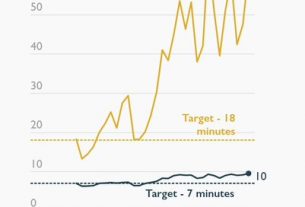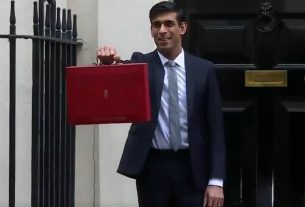A group of 141 UK universities is calling for an increase in tuition fees and more direct government funding to address a mounting financial deficit in England’s higher education sector. This comes as the number of domestic students starting university courses hits record highs, while international student numbers have fallen.
Since 2017, tuition fees for UK students have been capped at £9,250 in England. Universities UK has suggested linking fee increases to inflation, combined with greater government investment, to prevent the sector from deteriorating.
They argue that universities are losing money on educating UK students, and the financial gap has widened every year. According to the proposals, if funding had kept pace with inflation, the cost per student would now range between £12,000 and £13,000.
The Department for Education has stated its commitment to ensuring a stable future for the UK’s “world-leading universities.” Universities UK’s focus is primarily on England, as education policies differ in Scotland, Wales, and Northern Ireland.
Around 40% of universities are projected to run a budget deficit this year, according to the Office for Students, the higher education regulator.
Earlier this month, Education Secretary Bridget Phillipson indicated she was considering “all options” to tackle the “complex issues” facing universities.
Prime Minister Sir Keir Starmer, who once vowed to eliminate tuition fees during his 2020 Labour leadership campaign, has since dropped that promise.
According to Rose Stephenson from the Higher Education Policy Institute (HEPI), while it may be politically challenging to increase fees, a decision on university funding must be made to avoid institutions potentially going bankrupt. Other options under discussion include raising taxes or introducing a levy on businesses that benefit from a skilled workforce.
Universities UK’s proposals also call for several other measures, including:
- Increasing maintenance loans in line with inflation and reinstating grants for disadvantaged students.
- Aiming for 70% of the population to hold a Level 4 qualification or higher by the age of 25 by 2040.
- Expanding access to child and adolescent mental health services for students up to the age of 25.
- Maintaining sustainable numbers of international students.
In recent years, universities have relied on international students, who pay higher fees, to compensate for frozen domestic tuition rates. However, new visa restrictions and a currency crisis in Nigeria have led to a 17% drop in UK student visa applications between January and August compared to the same period last year.
A Department for Education spokesperson acknowledged the “challenging situation” in higher education, noting that the education secretary has already begun refocusing the Office for Students on monitoring financial stability to ensure the long-term health of universities.




